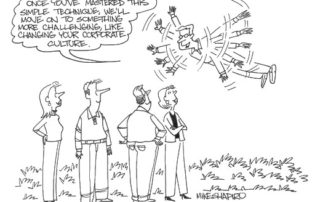FORBES – Joining The Executive Ranks? Begin with the end in mind.
As featured in Forbes. Beginning a new executive role is exciting. It can also be daunting and overwhelming, with so many people to meet and things to think about, prepare, do, and achieve. The role begins as soon as your position is announced and everything you do from that moment on communicates and has a significant impact. Your first three months are critical. Get these early days right and the positive momentum you establish can do a great deal of work for you, making everything that follows that much easier. Get distracted and fail to think through who you need to be, the relationships you need to build, the communications you must have, and the culture you must live and foster, and this important first impression opportunity is lost. If you are beginning as an executive (or simply want to be more effective in the role you currently hold), take pen to paper and answer the following questions. Then, place your answers where you can see them daily and schedule time to review your progress weekly. What kind of leader do I aspire to be? Who do I want and need to be to foster the ideal culture and to [...]






